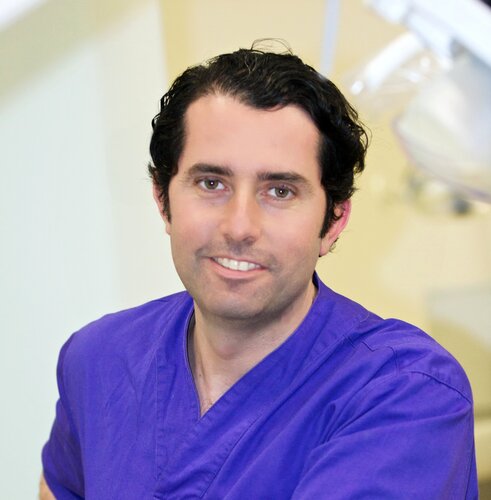![]()
19 September 2017
‘Looking after the gum and oral health of pregnant women is extremely important’ – Filippo Graziani

“Pregnancy is just one of the many phases of a woman’s life where fantastic and wonderful things happen but, at the same time, there might be an increased risk of certain diseases because of the major hormonal changes that a woman goes through,” warns Filippo Graziani, associate professor of periodontology at the University of Pisa.
These hormonal changes mean that “everything is bound to be more inflamed”, he points out. While gingivitis is quite normal during pregnancy and, in most cases, is “a problem that will resolve by itself”, it can sometimes lead to periodontitis in susceptible patients.
“This is why it is crucial that pregnant women are seen and treated during their pregnancy,” says Prof Graziani. “It is very important that we do not give up on pregnant women and their gum health during these very important nine months of their lives.”
In helping to prepare the guidelines for the EFP/Oral-B Oral Health and Pregnancy project, he and his team have examined in detail all the evidence about the links between periodontal diseases and pregnancy.
Their papers – a narrative reviewand a systematic review and meta-analysis – show that while numerous scientific data would support a possible association between periodontal disease and adverse pregnancy outcomes have been shown, scientists are still investigating the reasons that might lie behind this.
“Periodontal diseases have been associated with adverse pregnancy outcomes such as low-weight birth, pre-term birth, and even pre-eclampsia,” he observes. “Association studies have shown that there is a relationship between periodontal status and these pathologies. But we don’t really know why and we are still trying to understand what is going on.”
Graziani, an elected member of the EFP executive committee, puts forward some ideas that could explain these associations: “It might be that periodontal pathogens pass into the amniotic fluid, it might that be a woman who is pregnant and has periodontitis becomes even more inflamed than usual – and this might trigger some event. And we also need to face the fact that subjects who are pregnant and have periodontitis may also have risk factors for other pathologies such as smoking. So, it might be a question of common aetiological factors.”
There is also a lot of work still to be done on understanding the extent to which treating women for periodontal diseases during pregnancy can reduce the risk of low birth-weight, pre-term birth and pre-eclampsia. So far, there is little – if any – evidence to suggest that treatment leads to significant differences in terms of adverse pregnancy outcomes.
“When we look at intervention studies – studies that are aiming at treating pregnant women with periodontitis – there is not such a significant decrease of incidents of adverse pregnancy outcomes,” says Graziani. This may be because the trials carried out have not been as good as they might be, because the sample sizes were too small, or because of the choice of subjects in the trails – “Maybe if they had more severe gum disease you would see more effect,” he suggests.
He also proposes that trials might carried out before women become pregnant, to see if pre-pregnancy periodontal treatment can have a positive impact on the risk of adverse pregnancy outcomes.
But while more research needs to be carried out on the links between periodontal diseases and adverse pregnancy outcomes, and on the efficacy of treatment, Prof Graziani has a clear message for pregnant women and the dentists and physicians who treat them: “It is important that we look after the gum health and the oral health of pregnant women – for their own sake and, possibly, for the sake of the newly born child.”




